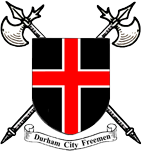30/09/2025
With The Freemen On Board Pitmen’s History “Seams” Clearer

The transformation, which has breathed new life into the dilapidated Redhills building in Flass Street, was launched nearly a decade ago and has cost £12 million. It has now become a centre for education and, at the same time, honours the cultural heritage of the county’s coalfield.
The Durham Miners’ Association had offices in North Road before the switch to the Redhills in 1915, at that time representing three million pitmen and their families and going on to create a prototype welfare state.
The penny and halfpenny union subscriptions from colliers toiling below ground in hundreds of collieries large and small, were used to improve conditions above by building retirement bungalows, sports grounds and welfare halls with reading rooms and libraries.
One of the most striking elements of the restored complex is the Pitmen’s Parliament, a Grade II-listed forum where DMA coalfield delegates would gather.
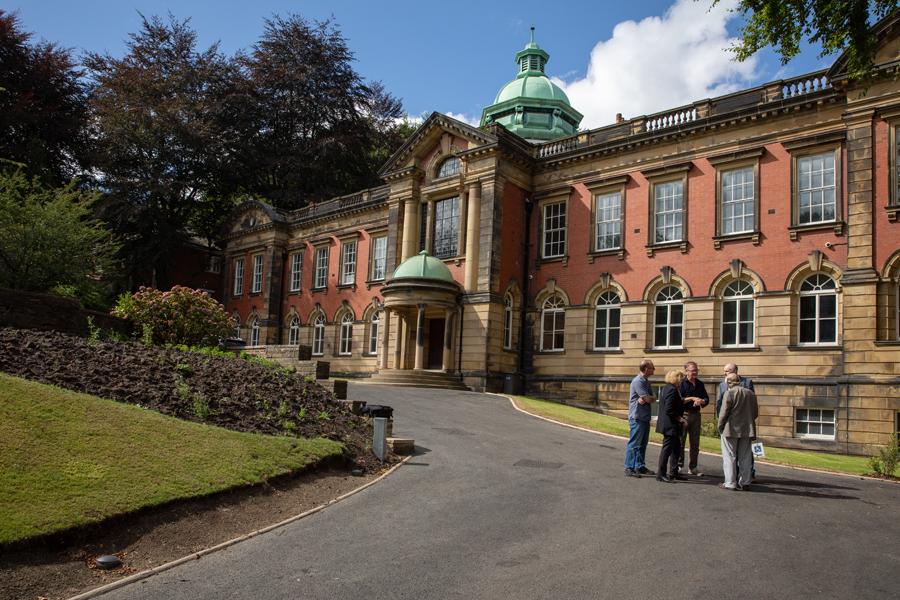
The DMA returned Redhills to the people of the county in 2018 and a charity now runs it on their behalf.
The freemen’s donation will cover costs of a display board at the newly modernized main entrance, giving visitors an understanding of the sequence and depth of coal seams beneath Durham’s rolling hills and valleys - and the names by which they were known, among them Brass Thill, Busty, Five Quarter and Maudlin.

After a guided tour of the complex by members of the freemen’s charitable trust, chairman Eric Bulmer said: “Congratulations to those responsible for the thoughtful and sensible renovation of a building that is steeped in Durham’s industrial past and for providing a wonderful cultural asset for both our local and regional communities.”
18/09/2025
Freemen Help Trainees Break Down Barriers To Win A New Start In Life
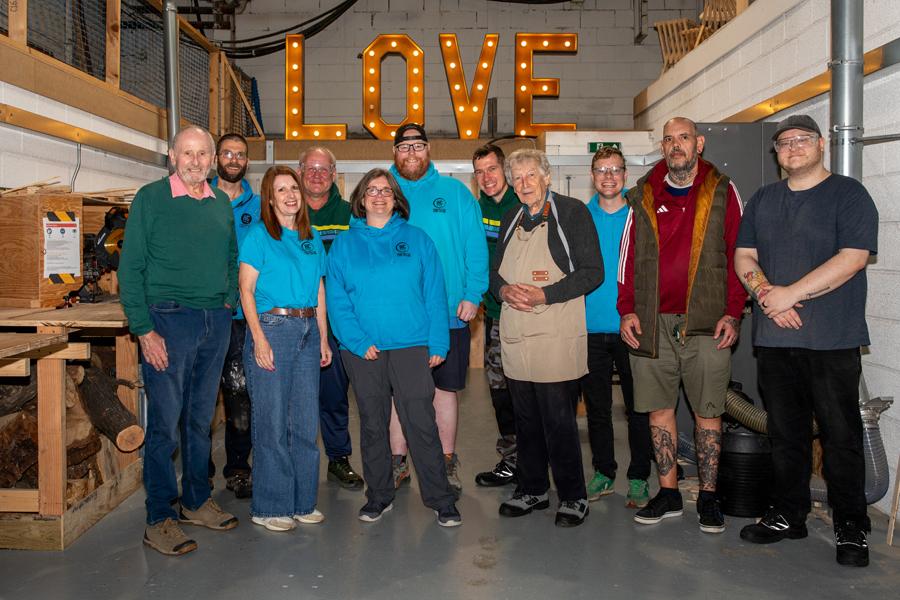
A Durham-based charitable hub – one of four regional centres offering trainees from the margins of society the chance of advancement by learning new skills - is expanding its operation thanks to a gift from ancient trade guilds of the city’s freemen.
For nearly fifteen years Handcrafted Projects has, from their Langley Moor skill and business base, delivered person-centred therapeutic activities alongside the charity’s other centres in Chester-le-Street, Gateshead and Sunderland. During the last year they supported 650 people across their four locations.
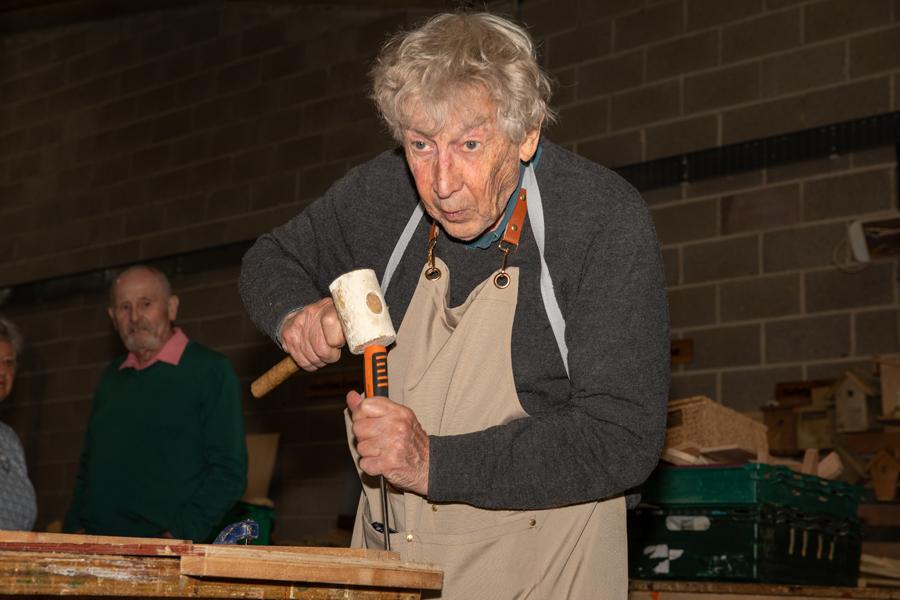
The 170 adult trainees currently supported at their Langley Moor complex - their ages ranging from late teens to pensionable age - have taken up supervised woodwork training five days a week, opted for developing cooking skills twice weekly or, more recently, been offered places on accredited cookery courses with similar accreditation in woodwork also to be offered soon.
“Our aims are to reach the most marginalised people in society by working alongside them to help them take the first steps towards turning their lives around by overcoming the barriers they face – whatever they may be.
“We offer tailored training opportunities, including accredited courses, to build confidence and nurture the coping strategies they need to reach their individual goals. Alongside this we offer a limited chance of supported housing in County Durham, Sunderland and Gateshead,” said Lorraine Jones, the Durham Project Manager.
“All adults are welcomed at our free sessions, regardless of their background, history or current struggles. Many have poor mental and physical health, others a history of homelessness, crime, addiction, long-term unemployment and domestic abuse, or are simply seeking community to combat isolation,” she added.
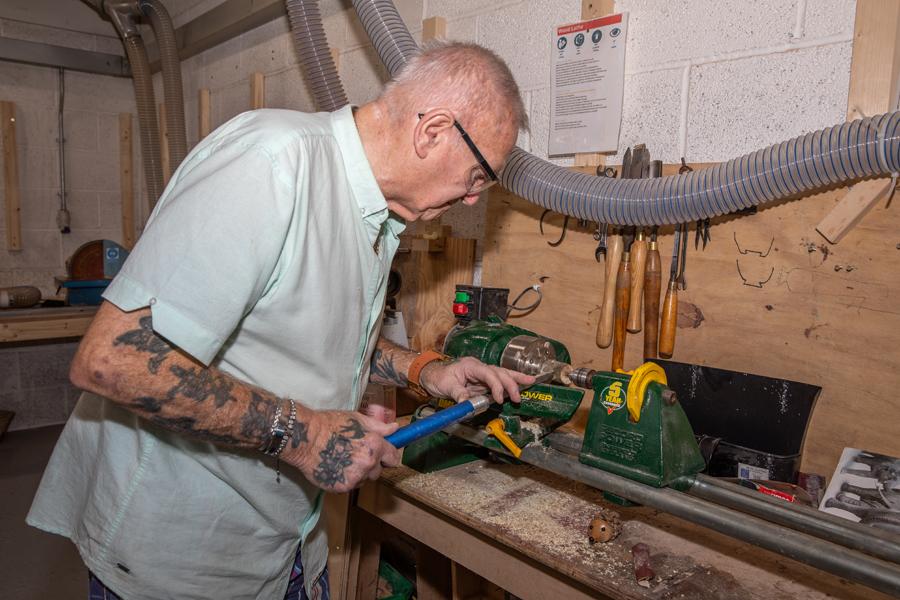
The £5,000 gift from the freemen’s charitable trustees will help underpin further development of the ground-floor woodwork workshop and training kitchen as well as new areas on the first floor.
At ground level a new community room will offer an informal welcoming space for visitors and newcomers, as well as a designated area for trainees to sit together as a community to take their daily hot meal, which is free.
The first-floor will become a multi-purpose home to a range of new course ideas. Headings currently under consideration are employability, digital and craft skills, budgeting, barbering, pottery, literacy and numeracy, as well as therapeutic and creative activities.
“Supported by recently acquired funding and the generosity of the freemen we are very excited at the possibilities these new spaces will bring and the challenges and opportunities they could create for both our skilled staff and our attendees,” said Lorraine.
The freemen’s gift will help buy tables, chairs and informal seating in the new ground floor community room, as well as the installation of a hot water boiler system giving attendees the chance to make their own hot drinks. On the multi-purpose first floor, classroom chairs, tables and a projector and screen for teaching purposes will also be included. Decoration and flooring will also make both new areas warm and welcoming spaces for everyone.
Eric Bulmer, chairman of the charitable trust said: “We are pleased to support a project which will assist individuals on the margins of our society build confidence and coping skills delivered through training adapted specifically for them.”
18/08/2025
Freemen offer a repeat gift to city's oasis of calm

A LATE-night weekend refuge in the centre of Durham, offering a helping hand to anyone in distress, has been given a renewed boost by the city’s freemen.
Last year they made a £1,000 donation to the Durham County Council-led Hub @ St Nic’s operating from St Nicholas’s Church in the Market Place - and have matched it with an identical gift this summer.
In the intervening 12 months the centre’s three Safer Street Wardens - currently operating between 9 p.m. and 3 a.m. on Friday and Saturday nights - have provided “pastoral care” to 1,000 individuals caught up in disorder. Within the safety of the church the team offer hot drinks, snacks, water, blankets and, where needed, flip flops to substitute for lost footwear.
Since its launch in February 2022 the running total of alcohol, drug and domestic abuse related incidents, as well as those with suspected mental health issues, now stands at over 4,000 incidents to date.
The Hub remains a key element of a partnership led by Durham County Council who employ the wardens and is supported by Durham Constabulary, the parish council, city centre businesses, the Temperance Trust and the Police and Crime Commissioner.
The operation was originally launched to aid women in distress but is now committed to extending a hand to anyone thought to be vulnerable. While demand for the Hub’s services remains constant it has in the past risen at the start of the university’s academic year.
Eric Bulmer, chairman of the freemen’s charitable trust added: “We are pleased again to be able to support a group working to care for vulnerable people in a safe environment.”
23/07/2025
Ambulance Charity Urgently Seeks ‘Good Samaritans’

An urgent public appeal for volunteer car drivers has been launched by the County Durham-based ambulance charity, Supportive, to help people of all ages - including children - reach both vital and routine health-related appointments and social activities.
The charity, based in Ferryhill, operates a two dozen-strong fleet of crewed ambulances and ambulance cars, committed to supporting services provided by the NHS and North East Ambulance Service.
But since its launch 30 years ago, it has also relied heavily on “Good Samaritans” from within local communities to meet up to a third of the calls from members of the public needing help. Before Covid 150 community drivers were available but since the epidemic the number has halved and new recruits are urgently needed.
Community drivers using their own cars have made tens of thousands of journeys, picking up isolated passengers, many unable to use or access public transport, to reach the specialist help they need to improve health and enjoy a better quality of life.
The current volunteers come from all walks of life, many retirees who give up their time, sometimes a few hours a week, in return for a mileage allowance.
Among them is retired schoolteacher and mother-of-three Shirley Grayson, now in her 90s and one of six volunteer drivers in the Barnard Castle area. It is a service she has provided for 14 years, mostly in the Nottinghamshire area.
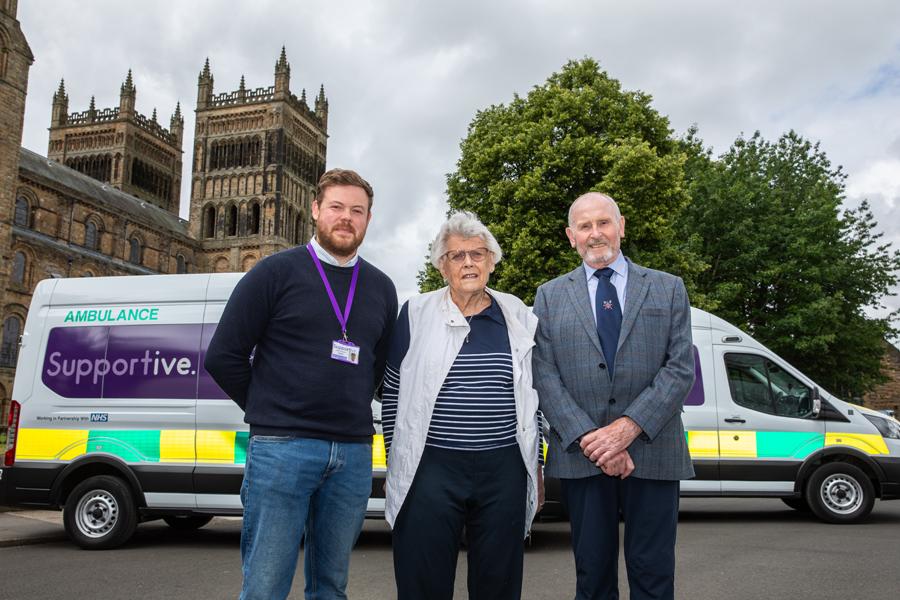
Robert Montanarini (Project Lead Supportive) with Shirley Grayson and Eric Bulmer Chairman of the Freemen's Charitable Trust
But, when she moved to the dales three years ago to be near her daughter, she switched to Supportive and drives as and when required to hospitals in Darlington Teesside and, on occasion, Durham.
“I am comfortable driving within an hour of home on roads far less congested than those around my former home. In rural areas with limited bus services, people struggle to get to important hospital appointments and consultations and I am happy I can still help,” said Shirley, who has seven grandchildren and eight great grandchildren. Her driving support during Covid was limited but admits it had a profound effect.
And retired civil servants Peter and Joyce Embleton, a married couple who live on the outskirts of Durham City, also provided critical support during the pandemic.
Joyce currently uses her car to make half a dozen trips a week, while Peter concentrates his efforts on Tuesdays, Wednesdays and Thursdays and can complete a dozen runs, some at short notice and on occasion involving children in care. His trips have, however taken him further afield to hospitals in Northumberland, Teesside, North Yorkshire and, on one occasion, Leeds.

Robert Montanarini with Colin Tazey, Shirley Grayson, Eric Bulmer and Peter Embleton
During Covid the couple’s work expanded into making food runs to soup kitchens and delivering food parcels to cash-strapped families.
“With demand for all health services showing no signs of letting up, alongside the rise in living costs and the specific transport needs of disabled people, the door-to-door service our community drivers provide has never been more important,” said Supportive’s Head of Operations, Kirsty Armstrong.
Durham City Freemen’s Charitable Trust were the first to support the charity’s appeal campaign, donating over £1,700 to meet costs of a county-wide leafleting and poster campaign.
And the freemen have since been joined by staff and engineers from the Sky TV’s Community Programmers Team who have offered their own time to distribute the appeal’s leaflets across local communities. Their efforts will serve to reinforce Supportive’s posters in G.P. surgeries, hospitals, clinics, dental surgeries and other health-related establishments.
The offer from Sky’s teams is pivotal to the distribution of the 20,000 appeal leaflets which compliment additional posters which have gone to supermarkets, libraries, sports centres and other public buildings.
Sky’s team is devoted to combating loneliness and isolation, particularly among both the elderly and the young. Last year, across the UK, their staff completed over 40,000 hours of volunteering and raised tens of thousands of pounds for charitable causes.
Grant Scobie, from Sky’s Communities Programme Team, explained: “It is our pleasure to help spread the word of Supportive’s brilliant work and help persuade more volunteer drivers to step up to the challenge and reach out to those desperate for help.”
Eric Bulmer, chairman of the freemen’s charitable trust added: “We acknowledge and applaud the dedication of those members of the public who volunteer to make these vital journeys for those most at need in our communities and are more than pleased to help ensure this most valuable work continues.”
To contact Supportive ring on 01740 658880
23/07/2025
All The “Smart” Moves Come With The Freemen’s Backing

A long-established community hub on the outskirts of Durham, facing rising costs and the threat of losing out to advancing technology, has been provided with a low-tech solution to high-tech problem by the city’s Freemen.
Part of the core business of the Framwellgate Moor Community Centre, a charity launched in the late 1960s, provides “wellbeing” activities for local people struggling with loneliness, mental health issues and social isolation.
But, in an average week, another 500 to 1,000 people pass through its doors, to take up education, learning, leisure, sport, fitness and cultural activities offered by a range of approved organizations whose hire of the three main halls and four meetings rooms provides vital income.
With a part-time staff of four, supported by six volunteers, the centre is also regularly used for coffee mornings and other highlights including a Christmas Fayre and refreshments following the Remembrance Day Parade.
Secretary Peter Sykes explained: “Over the past few months it has been discouraging to find we are missing out on potential hall hirings because we are unable to offer those enquiring the latest technology needed to support their work. This is almost entirely down to the inflexibility of our existing equipment and the same problem has also affected receipt of grants for specific projects.”
The solution, provided by way of a £5,000 gift from the freemen’s charitable trust, covers the cost of new mobile smart screen technology, the installation of electronic sockets in every hall and room and secure storage for the equipment.
“What we will now have at our disposal a lasting facility which will significantly improve the centre’s attractiveness to current and potential users. We are immensely grateful to the Freemen and their generosity will be marked with a plaque displayed permanently in our premises,” added Peter.
Eric Bulmer, chairman of the charitable trust, said: “We are delighted to support a dedicated group of volunteers who are providing a wonderful environment in which the local community can benefit greatly from a wide range of activities.”
13/07/2025
Summer Tea Party Launched in Royal Company

A LIVELY summer afternoon tea party in the former Durham pit village of Waterhouses has proved yet another hit with local residents.
The launch of this latest event complements a range of popular activities which earned the community association a commendation from Her Majesty Queen Elizabeth as part of her Golden Jubilee celebrations.
The party, organized by the village’s small independently-run and self-funded charity, was open to villagers of all ages who enjoyed food and refreshments prepared and served by dedicated volunteers.
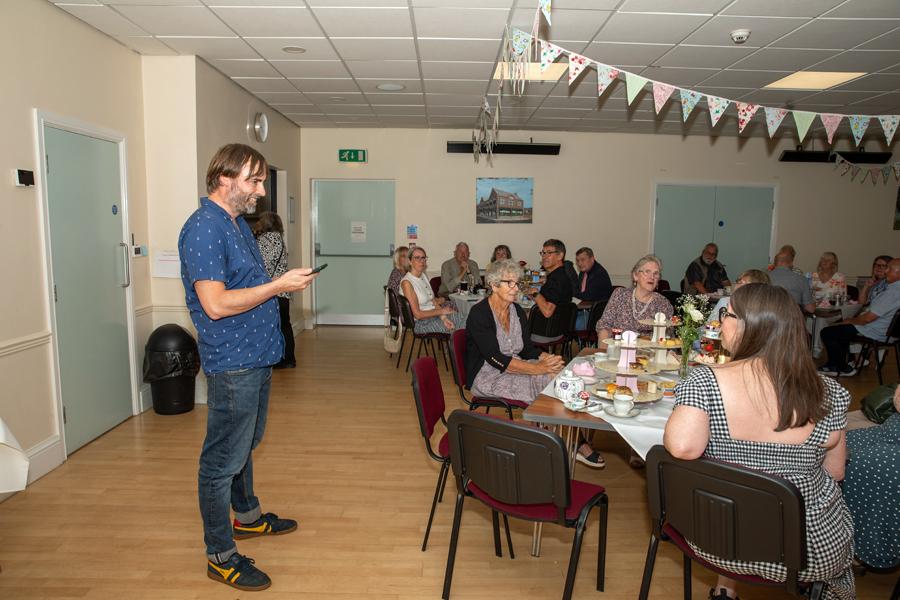
Supported with a £600 donation from Durham City’s Freemen, the Waterhouses Community Association’s decision to introduce the summer event followed the success of a free Christmas lunch served up to 60 senior citizens.
“We have a population of just over 1,000 and our mission revolves around providing social leisure and educational activities for all ages and capabilities. The village hall offers a central hub for community life, lifts spirits, reduces isolation, and fosters a sense of togetherness and belonging where people can come together and enjoy each other’s company,” said Tracey Gemski, a trustee of the charity and events co-ordinator.
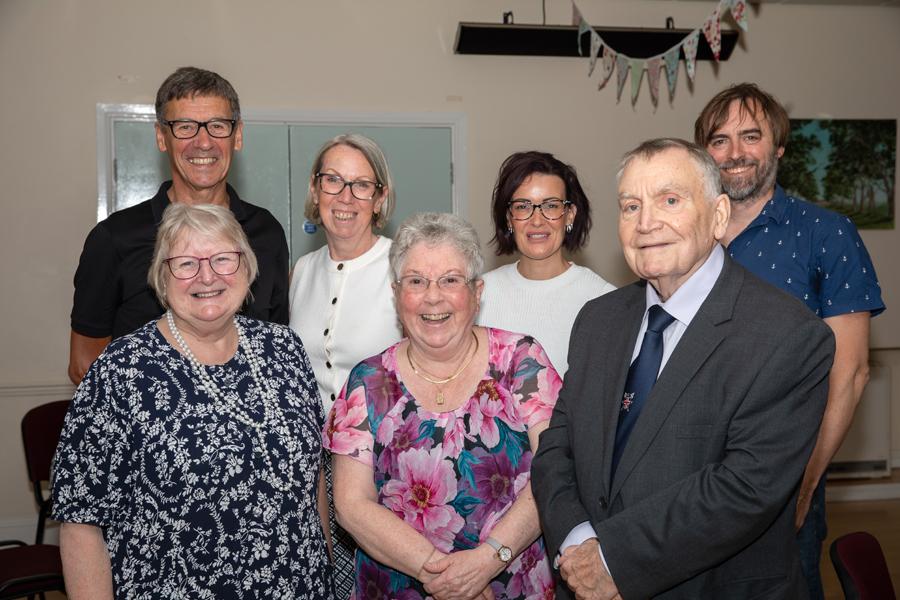
Over the past 28 years the association’s activities have grown to provide coffee mornings, playgroups, cinema evenings, music and memory afternoons, scout meetings and social gatherings, with the Christmas lunch topping the list.
The Queen’s letter of commendation hangs proudly in the foyer of the village hall and was joined at the end of 2024 by the King’s cipher, hand crafted in sandstone. It was fashioned by Steve Mann, a Durham Cathedral stone mason and mounted on a wooden frame created by joiner Anthony Swallow, another member of the cathedral team. Both men are also city freemen.
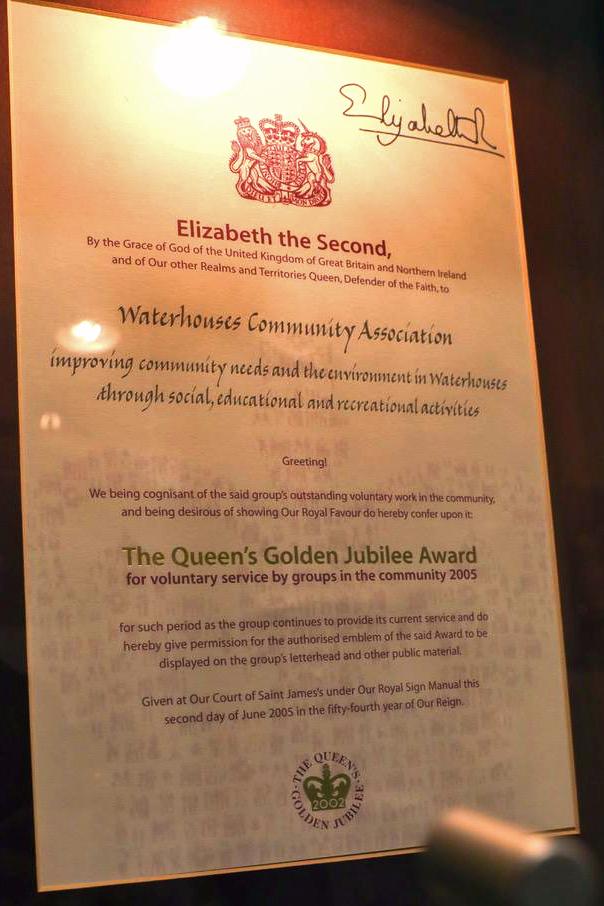
Eric Bulmer, chairman of the freemen’s charitable trustees said: “The community of Waterhouses is well served by this dedicated group of volunteers whose wide range of activities embrace people of all ages, a combination which serves to maintain and strengthen the ethos of village life.”
08/07/2025
Group Takes To The Road To Drive Home Prostate Cancer Message

DURHAM-based members of the region’s only pro-active prostate cancer support and promotion group are taking their message on tour – thanks to the financial backing of the city’s freemen.
The work of four dozen members of the group, who have all undergone prostate treatment, had been restricted to regular meetings at the Brawn’s Den public house in Brandon.
More recently group members, supported by nine volunteers, have taken the opportunity to speak at a number of indoor venues. But, they can now reach a wider audience at outdoor events with a travelling promotional show underpinned by a £1,250 gift from the freemen’s charitable trust.
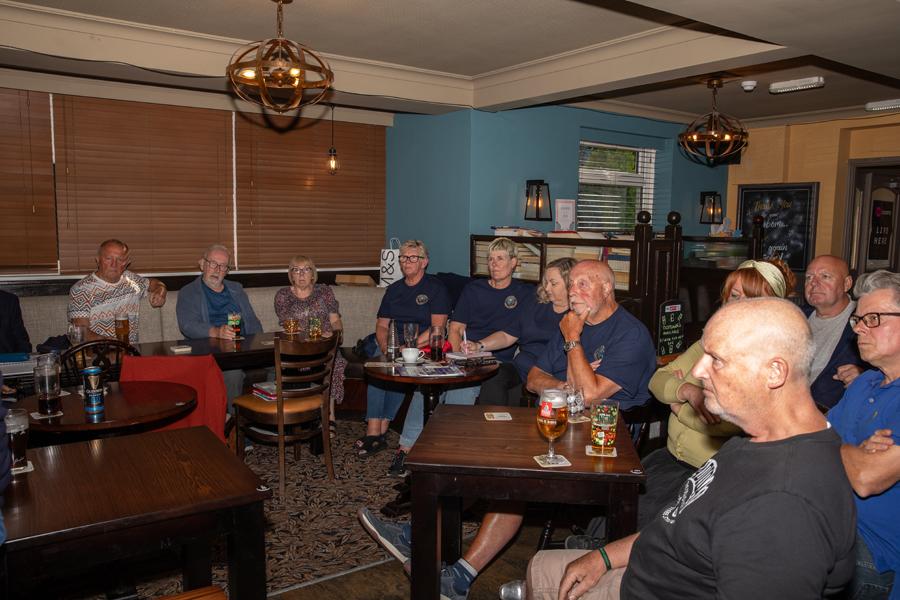
The money has been used to buy a gazebo, portable speaker, a table and chairs as well as promotional leaflets and posters. They will be used to drive home the message at selected local venues during the summer months, including car rallies, fairs, and trade shows
Les Cleckner, a leading member of the group, said: “Prostate cancer is almost becoming an epidemic with, in some cases, one in four men being affected. Our aim is, in the first instance, to prompt awareness of the statistics and urge men to seek early medical screening for a disease which claims lives. From our own experience we are also able to offer first-hand advice and answer questions about treatment options and what they involve.”

Recently the group recruited the backing of Brandon Parish Council, whose members agreed to meet the cost of installing a defibrillator at the group’s public house meeting place. Additionally, they have established links with Talking Prostate Cancer UK and the promise of support from former Tyne Tees TV newsreader Pam Royle.
Sixty-seven-year-old Les, a time served craftsman, was part of the maintenance team at the University Hospital of North Durham for 42 years before retiring in 2023. A year later Les, married with two sons and four grandchildren, was sworn in as a member of the freemen’s Joiners’ Company and was established in 1661.
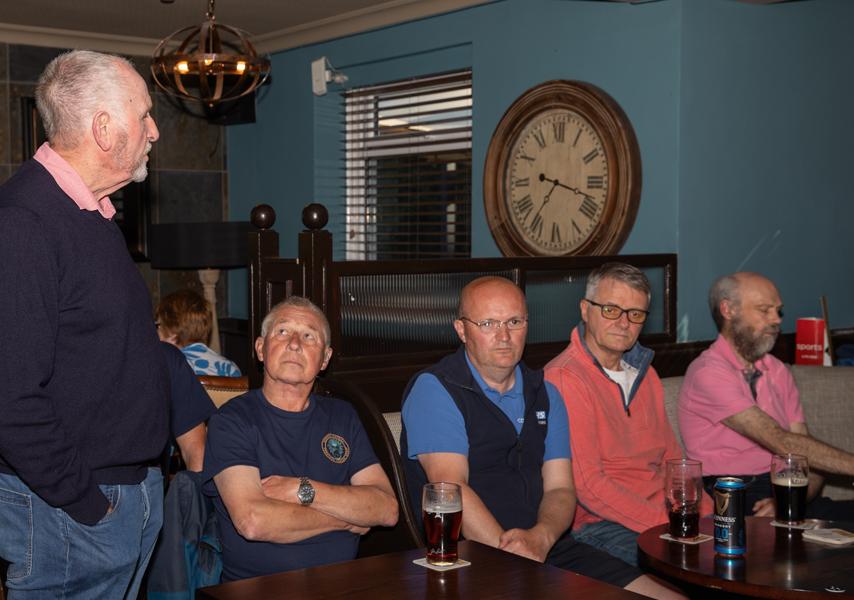
Eric Bulmer, chairman of the charitable trust, said: “We are delighted to provide a grant to a group of such dedicated volunteers who provide such a valuable service within our community and beyond.
“It is also significant Les Cleckner, a fellow freemen at the forefront of establishing the group, is reinforcing the key role the city freemen’s craft companies have played in the life and development of the city since the Middle Ages.”
27/05/2025
Festival targets children and young people to build on success

ORGANISERS of a successful performing arts festival, planning their fifth successive annual event in Durham City, are focusing attention on children and young people in the surrounding communities to help build on dramatic rises in audience numbers.
Last summer the five-day Durham Fringe Festival sold 7,500 tickets – an increase of forty per cent - to performing arts audiences attending productions embracing music, dance, theatre, magic, stand-up comedy, cabaret and children’s shows.
Supported by a new £1,000 donation from Durham City Freemen’s Charitable Trust and £2,500 from EMG Solicitors, the festival team is working in partnership with the charity Durham Area Youth and local youth projects which are part of the Durham Youth Print network, to reach children and young people who live in local villages and areas on the outskirts of the city centre.
The community engagement project has involved pre-festival taster performances, including rising star Ben Donaghy at Pittington Village Hall and North East Culture Awards Winner, Isabel Maria, at the Sir Thomas Allan Assembly Rooms in the city. Young people visiting the Assembly Rooms also had a “behind-the-scenes” tour backstage and heard from various staff members about their routes into careers in the arts.
Analysis of a survey carried out in the wake of last year’s event, confirmed an audience satisfaction rate of over 93 per cent and also identified “the potential to deliver the magic and buzz of a festival experience” to young people from culturally deprived areas close to the city.
Festival director Stephen Cronin said: “Previous Durham Fringe Festivals in the city have proved the appetite and demand for a festival of this sort in an area which has one of the smallest arts and culture sectors in the country. We are constantly looking to grow and diversify our audience and the generous support of both the freemen and EMG will be transformational and a key part of helping us to do that.
“This community engagement project with Durham Area Youth and Durham Youth Print is a logical next step for us and builds on partnership work in previous years. We were delighted when Durham Youth Print approached us with the idea for a joint project as we’ve always wanted to do more to reach children and young people who live so close to where the festival takes place.
“We are very aware of the cost of living crisis for families and the support from the freemen and EMG will mean we can offer tickets and support with transport for young people involved in the project. They will also have the chance to take part in supported volunteering. We’ve got some fantastic shows for younger audiences this year, so the timing of the project is perfect.”
Eric Bulmer, chairman of the freemen’s charitable trustees said: “We are delighted once again to support the Durham Fringe, particularly its project to engage with young people in our communities.”
Claire Hewitt, head of business development at EMG added: “Supporting our local communities is at the very heart of what we do and we are excited to be supporting this opportunity for so many young people who are interested in the arts.”
Durham Area Youth’s chief executive Emily Burns said: “It’s a brilliant opportunity for young people from across the outskirts of the city to engage with the festival and have an experience they might not ordinarily have access to. It promotes collaboration and partnership working across sectors, all for the benefit of improving opportunities for young people.”
15/05/2025
Birth and death of a pit village remembered

A ONCE thriving mining community on the outskirts of Durham, born in the early 19th century and disappearing 150 years later, is being permanently remembered in a heritage project supported by a local community group, the city’s freemen and the county council.
The seeds of the village of Middle Rainton are reported to have been sown in 1820 with the sale of a plot of land - sandwiched between the existing villages of West and East Rainton - to the agent of Lord Londonderry, whose ambition was to sink a large pit and build homes for miners.
But by the summer of 1970 it was finally gone, victim of the county council’s hugely controversial Category “D” Plan, launched in 1951 targeting 114 ailing villages of “limited economic development.” The proposal suggested eventual demolition by cutting public support and watching the labelled communities “deteriorate out of existence.” While many villages successfully fought off the “Category D” stigma others, among them Middle Rainton, appeared to accept their fate as inevitable - the last remaining part demolished to make way for the A690 dual carriageway.
Three years ago a small plot the land on which the village once stood has been transformed into a community orchard, an innovative plan suggested by the 16 members of the West Rainton Green Group.
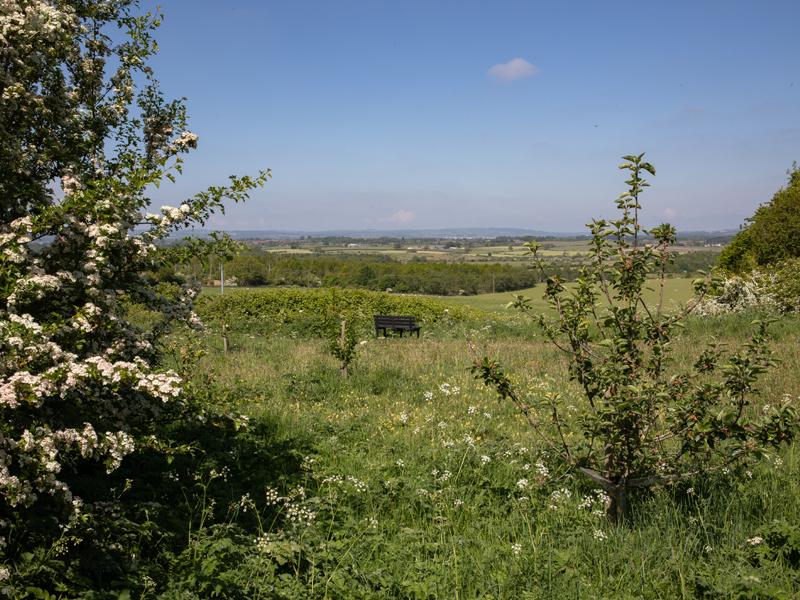
Backed by Northumbrian Water with a £700 gift to cover the cost of two dozen apple, pear and plum trees, the haven will also boast fruit bushes and wild flowers. Two memorial heritage boards are being crafted by the county council and one of them, outlining the lost village’s history, will be paid for with a £1,250 grant from the city’s freemen. The second will identify trees within the orchard and invite people from the local community to pick the fruit.
Wikipedia reports that within four years of his lordship’s 19th century land deal the Meadows Pit and associated coke works became reality, one of six other ventures in the surrounding area which had started up as early as 1816.
Cottages for miners working the Meadows were speedily erected and census returns 30 years later confirmed the majority of Middle Rainton’s 189 homes were occupied by pitmen and their families.At its height the population topped more than 800, supported by shops, four pubs, a Salvation Army Citadel and Primitive Methodist Church – and a policeman living within their midst.
One notable event was said to have taken place in 1843 when a black American woman evangelist reported she had preached before a large crowd at an outdoor event in the village.
By the turn of the 20th century the village’s population had dipped below 550 and the local medical officer of health expressed repeated concerns about insanitary conditions. Some homes fell into disrepair, others were uninhabitable and four were so bad they were demolished. By the end of the Second World War conditions remained a major concern, blighting its future. By 1950 just 30 properties survived with most residents migrating to East and West Rainton and Peterlee.
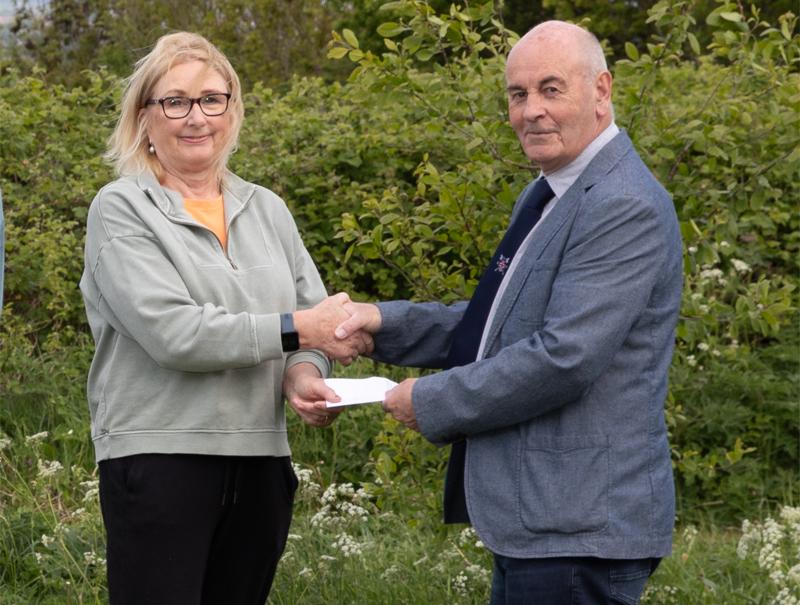
Annie Hastie, a member of the 16-strong the Green Group, allied to the West Rainton and Leamside Village Partnership, said: “We believe the project will benefit the whole community, an area where people can enjoy a walk in a pleasant space and, during the autumn, be at liberty to collect fruit.
“The county council, who have labelled the area a community site, will cut grass once a year and we have agreed to clear away the cuttings to encourage appropriate soil conditions.”
Eric Bulmer, chairman of the freemen’s charitable trust, said “We are pleased to support a group of volunteers not only providing a wonderful natural setting for the community but also informing today’s generation of the heritage of the site and the vital part the mining history in supporting the industrial revolution.”
28/03/2025
Time for tea and reflection in a peaceful woodland glade

AMBITIOUS charity workers have transformed an overgrown woodland into a haven of peace and tranquility - which includes a public tea room in the trees – thanks to a second injection of cash from Durham City’s Freemen.
Staff at Lionmouth Rural Centre started work on their £10,000 woodland project, adjacent to their Broadgate Farm site, located between Esh Winning and Ushaw Moor, last spring.
The freemen’s charitable trustees initially pledged £1,000 towards the woodland development but last autumn promised a further £3,000 to help underwrite costs of the wooden tea room, destined to meet fresh public demand at the centre’s thriving plant nursery.
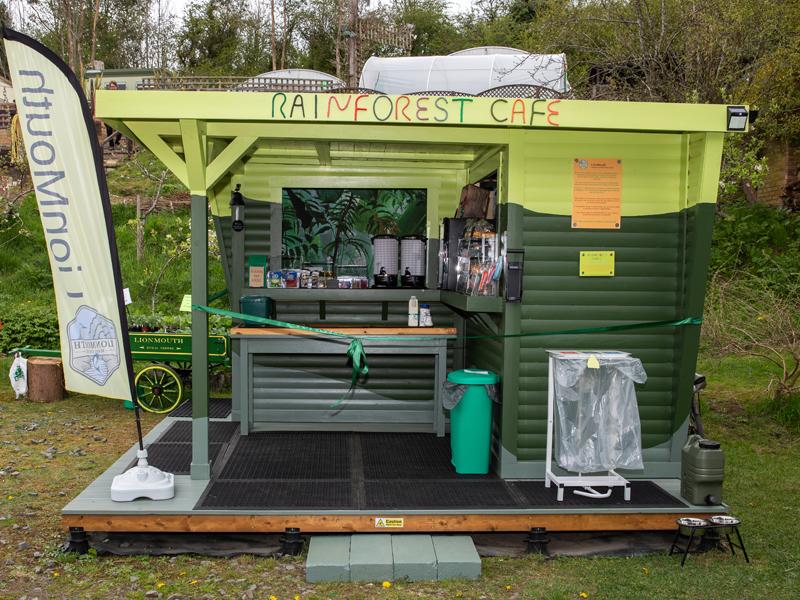
More that two dozen local people aged from their teens to mid-60s - some struggling to cope with social or learning difficulties, others suffering or recovering from mental health issues - attend the centre. They are supported by two full-time and three part-time staff, backed by a team of 16 volunteers.
The attendees are offered day care support and training in woodwork, horticultural, art, pottery, cookery and conservation.
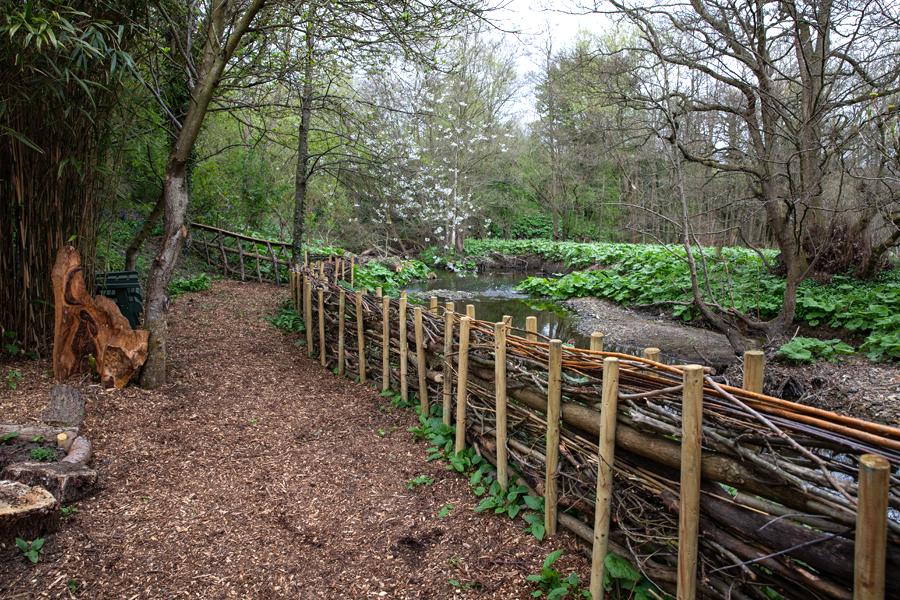
A once overgrown plot at the centre containing trees and shrubs - some of them rare - are now embraced within the new managed woodland venture. The development work, tackled by staff and clients, offers public access along a featured pathway now lined by scented plants and shrubs and leading into an open glade with seating, benches which enojoy a view of the nearby River Deerness.
The addition of a tea room was dovetailed into the project to meet “consistent and continuing demand” from visitors dropping into the nursery.
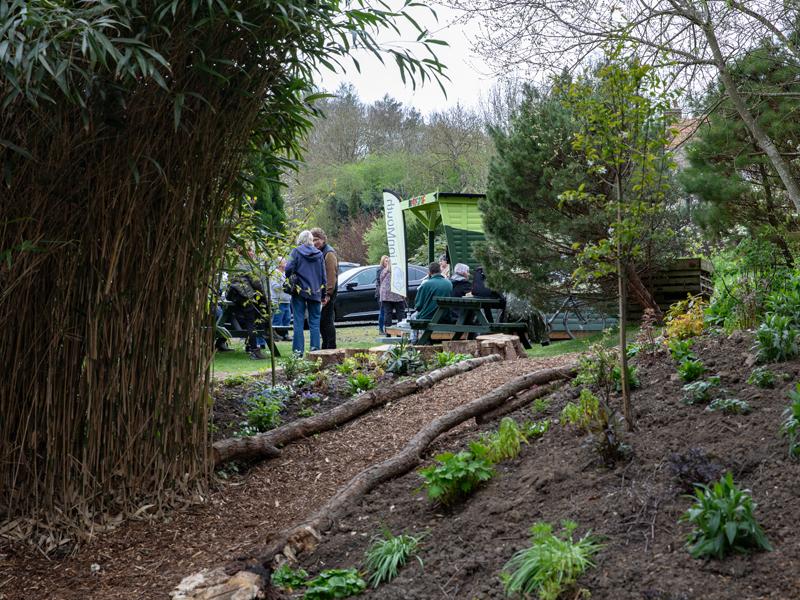
Centre manager Brigid Press explained: “We had a thriving tea room before Covid but were forced us to close it down. We then had to utilize that area to provide chairs, desks and sufficient space for clients to allow us to re-open. Now clients have been reluctant to give up their own little pieces of territory and the change happily works better by allowing us to take on more clients.”
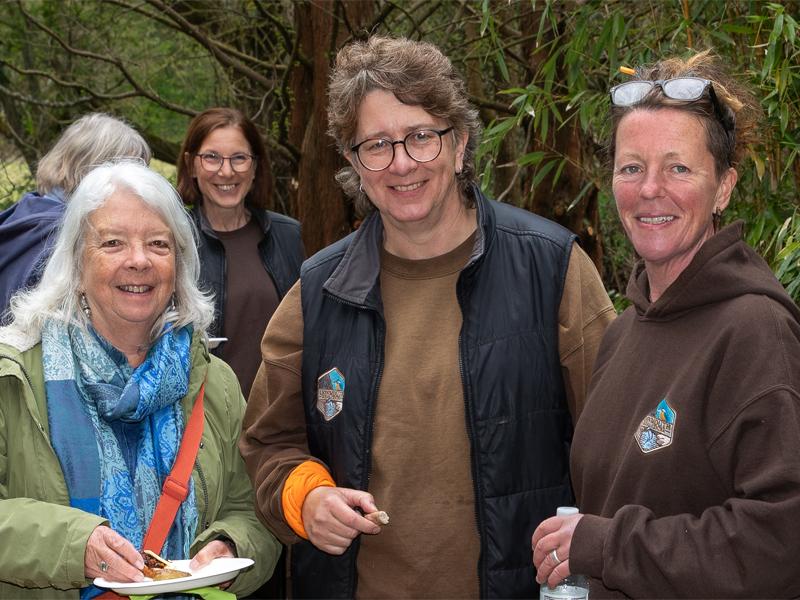
She admits the new wood-built tea room in the trees – with its own power supply - will be a scaled down version of the original. But it will have additional seating, as well as a gazebo providing shelter.
Although operating with an element of self-service the tea room will be staffed by some of the day-care users who will cook and bake the produce they will be serving.
“Those involved will be playing a larger public-facing role than they have in the past and will be trained and certified in food safety before starting,” added Brigid.
Eric Bulmer, chairman of the freemen’s trustees, said: “Once again the Lionmouth staff, supported by its many volunteers, have demonstrated their enthusiasm and dedication to continue developing the site for the benefit of its vulnerable clients, local community and visitors.”
28/03/2025
Blood Bike Couriers Gifted an Infusion of Cash

A DEDICATED band of life-saving motor bike couriers, spearheading a vital out-of-hours service delivering vital blood and medical supplies to the region’s hospitals, healthcare sites and the Great North Air Ambulance, have themselves received an important gift – a donation of £1,000.
The cash, from Durham City’s Freemen, will help meet the running costs of the Northumbrian Blood Bikes regional fleet of a dozen bikes and eight cars which burn up more than £7,500 worth of fuel annually and face a £26,000 insurance bill.
One of the bikers most frequently used team is based just a few hundred yards from the University of Durham Hospital, with its unpaid riders and drivers drawn from surrounding villages.
One member of the driving team is Steven Laws, who lives in the city and became a freeman after completing a craft apprenticeship at the Harrison’s organ factory more than 30 years ago. He went on to work as an instructor at Frankland Prison before joining the support staff at New College.
His own money-raising exploits for the charity over the past six years have included taking part in four annual Benidorm-or-Bust rallies from Dover to the popular Spanish resort with his son Sam.
The near 1,200-mile one-way fun-run in a convoy of old bangers takes up to five days to reach their destination. The event attracts scores of drivers from across the country, each committed to raising funds for their nominated good causes. The Durham father-and-son’s four Iberian adventures, paid for entirely from their own pockets, have alone raised nearly £12,000 for the Blood Bikes.
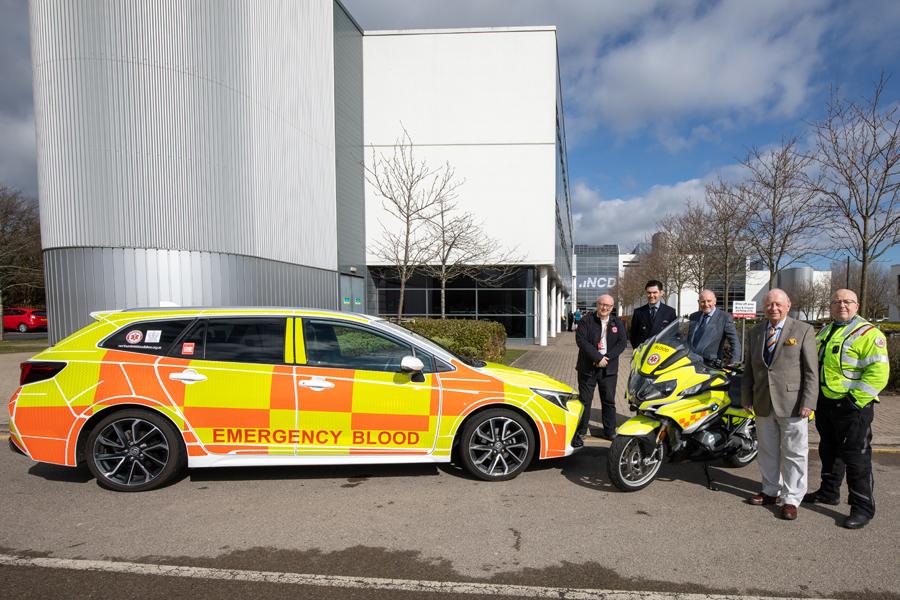
Over the last decade the Durham-based biking/driving teams completed nearly 5,000 regional out-of-hours runs, including daily deliveries to the air ambulance.
Their region-wide free service operates round-the-clock at weekends and twelve hours between 7 p.m. to 7 a.m. each weekday. They receive no Government funding, rely entirely on charitable and public donations and save the regional health service up to £400,000 annually.
Kirsty Lawrence, a trustee of the bikers’ charity, said: “We don’t charge for the service we provide, not least so the money the NHS saves in transportation costs can be put back into the front-line care of patients. We rarely find out who we have helped but one day we might be the ride of your life.”
The chairman of the freemen’s charitable trust, Eric Bulmer, said: “Once again a group of volunteers, whose work goes unseen and often unacknowledged, provide a vital service for our local community. We are delighted to help give the tangible support they so surely deserve.”
27/03/2025
Freemen’s “Fantastic” Tonic For City Hospice

A Crisis-hit hospice, forced into make a string of staffing cuts in the wake of the Chancellor’s autumn budget, has been given a major boost by Durham City Freemen.
In January St Cuthbert’s Hospice, with a 124-strong workforce, axed 18 jobs in the wake of the rise in National Insurance contributions alongside other inflation- linked support.
Since opening in 1988 the hospice has been offering free 24-hour pain management and end of life care, as well as dementia and bereavement support to a total of 1,000 people annually. But managers now warn the enforced economies may result in up to 150 people missing out on day care services, with 100 more losing access to bereavement support.
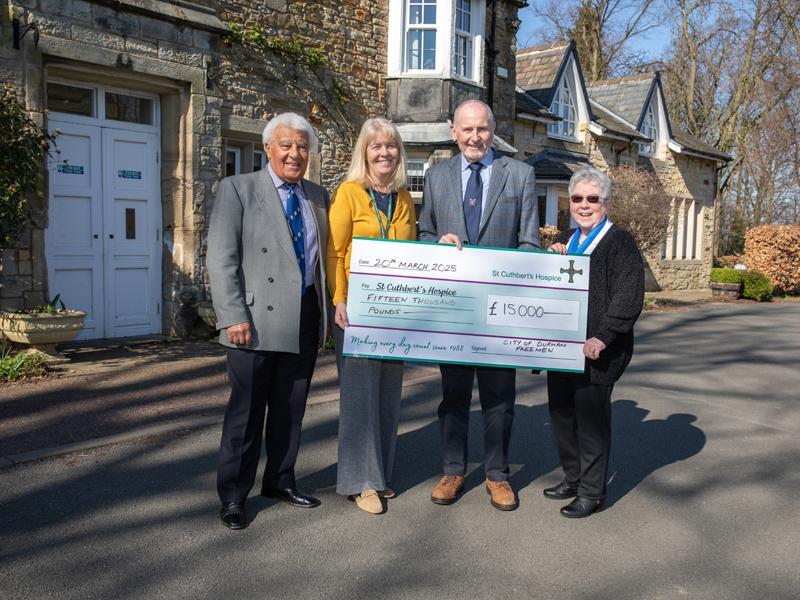
Announcing the immediate decision by the freemen’s charitable trust to gift £15,000, trust chairman, Eric Bulmer said: “We have long been aware of the vital service delivered by the dedicated staff and volunteers at the hospice and have made significant contributions over the years. We felt duty bound to act in the present crisis.”
The hospice’s annual running costs have latterly topped more than £3.5 million, covering all services, particularly specialist medical and nursing care. The support from commissioning organizations, including the NHS, have been meeting less than half of the yearly bill.
Patricia Boynton, the hospice’s trusts and grant manager, offered a “massive thank you” to all the freemen for the donation.
She added: “When I heard the fantastic news I couldn’t wait to tell everyone at the hospice. We continue to rely on charitable funding and this gift means so much. We have always believed what we offer should be accessible to all.”
Eric also explained the freemen’s decision was particularly poignant, following the “wonderful care” received by Alan Ribchester at the hospice in the final days before his death at the end of January.
Alan, a leading chartered accountant in the region, had been the instigator and driving force behind the establishment of the freemen’s charitable trust.
27/02/2025
Mayor's Charity Appeal Gets Major Boost

TWO charities supported by Durham’ Mayor, County Councillor Liz Brown, during her year of office will share a £1,000 gift from the freemen.
The two recipients, Feeding Families and the animal rescue service Stray Aid, both operate within the county’s boundaries.
Thousands of families across the region facing “food poverty” have benefitted from deliveries from the charity’s distribution centre in Blaydon. Two thousand food boxes are sent out every month and during the last year more than160,000 meals have reached families on the breadline.
From its County Durham base Stray Aid dedicates support and protection to abandoned dogs and homeless cats.
On her appointment the city-born mayor said she was honoured and excited to be given the opportunity to represent the communities and organisations which “make this wonderful; city what it is.”
She said: “My chosen charities are really important to me. At a time of higher living costs helping struggling families facing poverty is vital, as too is sheltering abandoned animals.”
Coun. Mrs Brown, the representative for Neville’s Cross for seven years, is married for with four children. She has followed a varied career, embracing garden design, cleaning houses and working for the BBC.
20/01/2025
Butchers look to save their ancient craft skills

NEWLY apprenticed butcher Rachael Lister looks set to be a cut above the rest at the start of her chosen career - thanks to an award from Durham Freemen’s Charitable Trustees to help meet the cost of the tools she will need.
And the 22-year-old’s benefactors – whose own links to the meat trade stretch back more than 500 years - hope the move will help preserve some of the centuries-old skills which are threatened by progress.
Rachael, from Stanley, was working in the café at Broom House Farm near Witton Gilbert when she was offered a switch to their on-site nationally acclaimed shop and butchery - last year voted the best in the country.
During the last 12 months “her potential and enthusiasm” was recognized by the craftsmen in the shop and she accepted the offer to take up an apprenticeship.
Scrutiny of her on-the-job training will be monitored until 2026 by the industry specialists Meat Ipswich until 2026 through a series of assessments. Her supervising mentor at Broom House will be one of the shop’s own time-served butchers, Vincent Syson. As well as being a Durham City Freeman Vincent is also deputy warden of their Butchers’ Company, which welcomed the 500th anniversary of the granting of its charter in 2020.
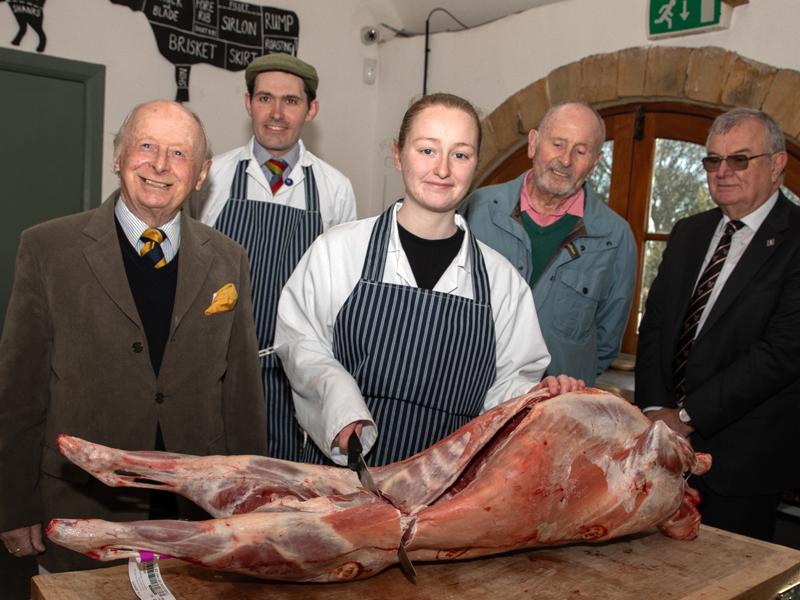
Rachael will use her £400 award from the freemen to buy a set of knives, sharpening steel and chain mail apron and glove.
“We are tremendously proud of our award-winning status and the home reared lamb, pork, beef and mutton which we sell through the shop. We are also committed to making sure our craft is preserved and ensuring our farm-to-fork skills are passed on to future generations,” said Vincent.
“We work with whole carcasses of meat reared on this farm, which come to us in their entirety. It’s something of dying art but provides customers with a better quality and wider of choice of cuts of meat. The alternative, known as ‘boxed beef,’ is a cost-cutting convenience adopted by many butchers – a practice which involves animals being cutting up at slaughterhouses before being sent out ready to be put on display,” he added.
Eric Bulmer, chairman of the charitable trustees, said: “I am delighted the trust is able to support Rachael on her journey towards developing skills in a craft which has historic connections with the city and we wish her every success.”
